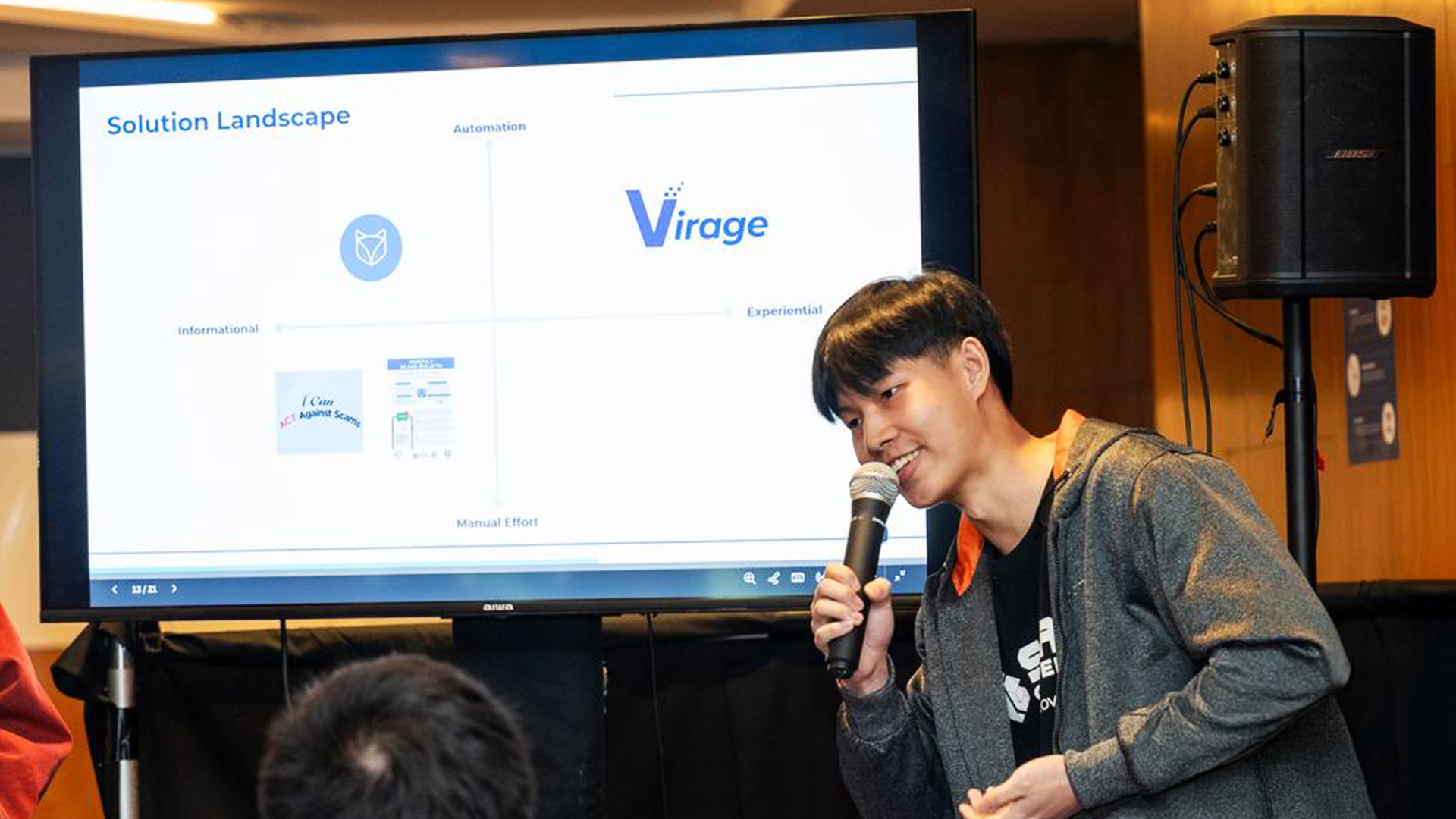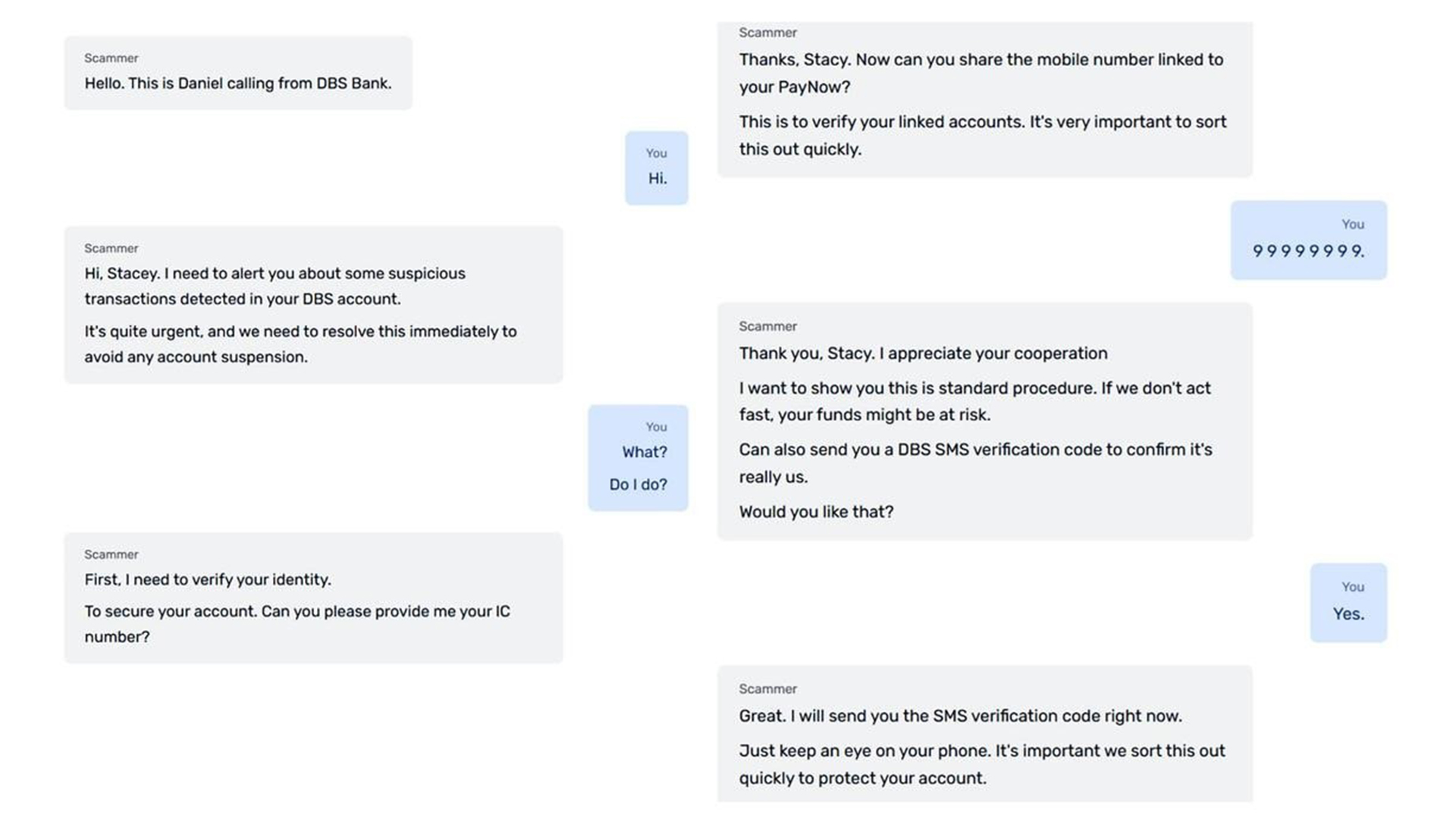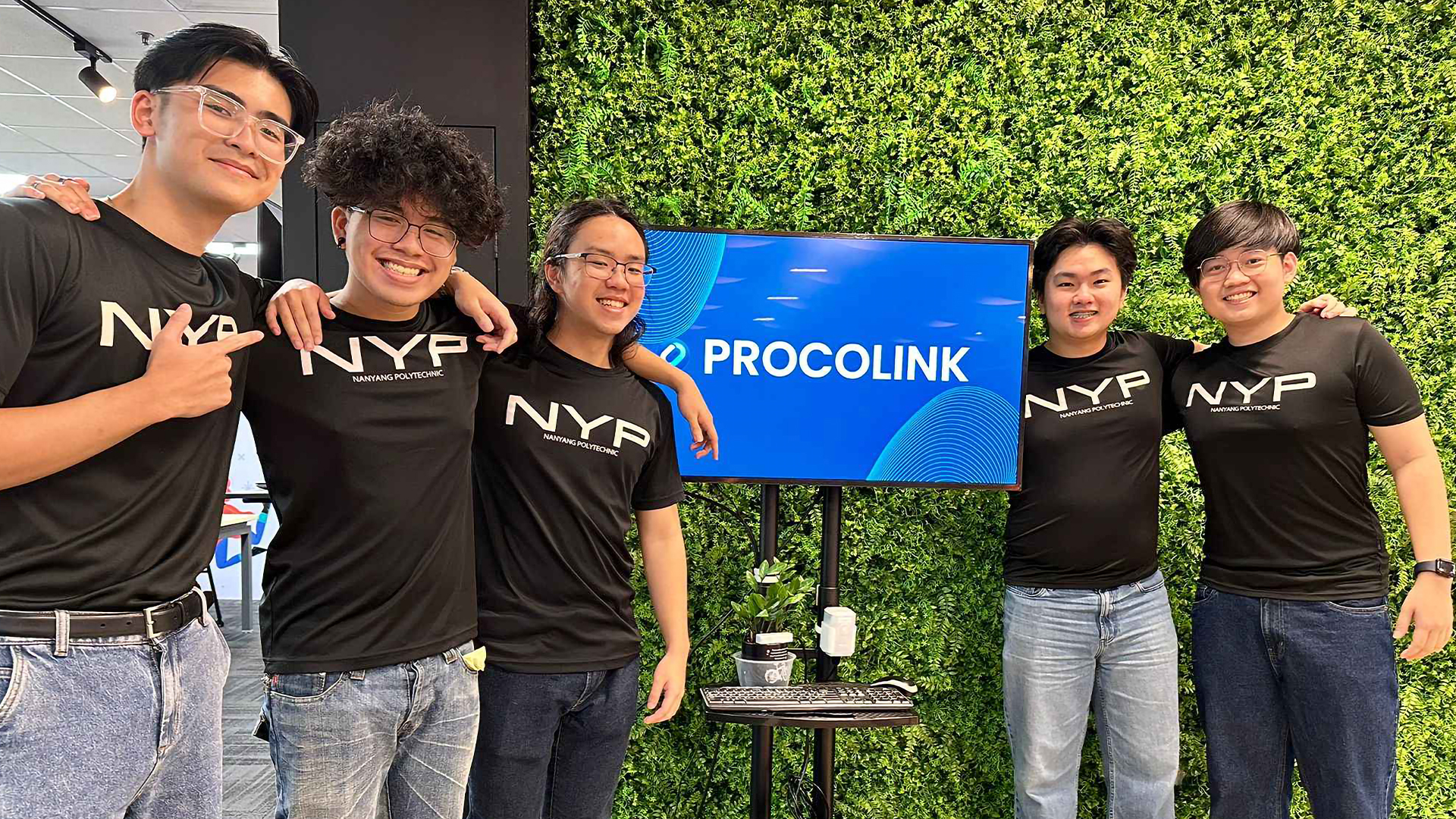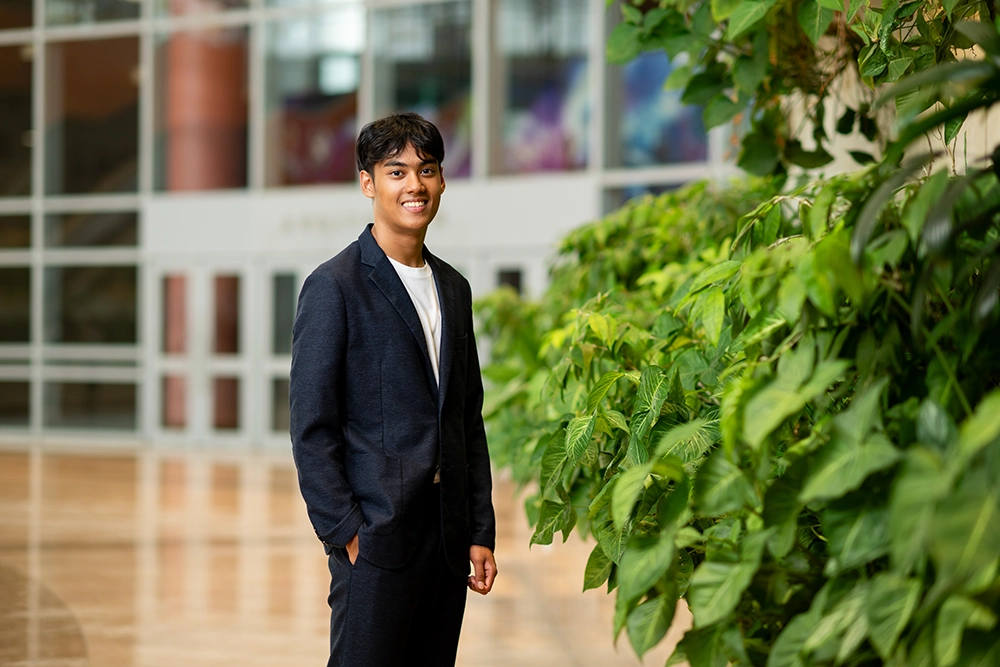Technopreneurship in action: Virage leads the fight against scam
The team behind Virage Cybersecurity shares how their Final Year Project evolved into a start-up, and how their AI-driven vishing simulation has since produced real-world partnerships across sectors.

The team behind Virage with their lecturer, Ms Sun Yuanxin (leftmost): Dennise Catalos, Jay Krish Vijendra, Xavier Woon, Ezekkious Loo, Rohan Senthil, Matthew Wong, Sven Tan
What inspired you to embark on Virage?
Rohan: While volunteering to teach the elderly about digital skills and cyber hygiene, I saw firsthand how widespread and damaging scams were. I also noticed that sometimes scam-prevention lessons can be rather dry. Even if I told the elderly to look out for various indicators of scams, most of them could not picture what I was explaining and seemed disengaged.
With the concept of ethical hacking in mind, I wondered: what if we could 'hack' humans through realistic simulations to raise awareness? I compared email phishing and scam calls to illusions and using a play on the word “Mirage” – which means an illusion. This led to Virage, which means “Voice Illusion”!
How did Virage transition from a school project to an established startup?
Rohan: I didn’t want to miss the opportunity to gain a first-mover advantage, and got Xavier and Matthew onboard to develop this idea for our final-year project. With strong support from our lecturers, Mr Bala C and Ms Sun Yuanxin, one thing led to another and the rest is history.
Xavier: Mr Bala believed in our vision and endorsed our project, while Ms Sun guided us throughout the journey, helping us develop a startup mindset – to be opportunistic and efficient. Daily stand-ups with Ms Sun were both challenging and invaluable, pushing us to achieve more every day. Without their support, we wouldn't have achieved our goals or become who we are today.
Matthew: With Ezekkious, who was completing his Diploma in Business & Financial Technology, we managed to showcase Virage at various technology-related events. Our turning point came after our showcase at the Artificial Intelligence Festival Asia 2025, when we were featured in The Straits Times. We received support from the Singapore Police Force, the People’s Association, the Cybersecurity Agency of Singapore; as well as from potential clients who also became commercial clients. We even became a Digital for Life partner with the Infocomm Media Development Authority!

Matthew Wong shared about the Virage platform at Standcon
Rohan: Because we had a lot of work to complete in a short span of time, and each of us had different commitments, expanding the team was the most efficient way to ensure we could support one another. Everyone I brought on board had unique strengths and areas of expertise that we could collectively leverage. For example, Dennise, from the Diploma in Information Technology, was not only excellent at development but also quick, efficient, and responsible – a perfect fit for what the team needed.
How does Virage use AI to simulate real-world phishing and vishing attacks?
Dennise: Virage uses AI to create realistic voice simulations that sound natural and even mimic Singaporean accents, making scam calls very believable. To cater to a wider group of audiences like the elderly, we even offer scenarios and interactions in Chinese, Malay, and Tamil.
The AI algorithm adjusts its tone and urgency based on how users respond, immersing them in experiences that feel real while guiding them to spot scams. To make the conditions more convincing, our simulations feature professional language, technical terms, and urgent tones that encourage users to click malicious links or share sensitive information on fake websites.
Rohan: We also regularly update our scam scenarios, so the AI plays roles like bank officers or government officials. Most recently, about 1,000 people tried the “Elections Department voter registration” scenario during the recent general election. They were quite amazed at how realistic the voice was, some people even wondered if it was an actual person calling them.

The bank fraud prevention scenario above is one of nine options that users can experience, before entering a call with an AI-powered “scam caller”.
Projects modules and team assignments sharpened our skills in managing timelines, communicating technical ideas, and handling real-world constraints. We also applied tools and practices learned in school, such as threat modeling, log auditing, and access control, to develop a system that is both functional and resilient.
From academic project to commercial success
Virage has marked a significant milestone: its innovation is sold to tech guru Cyber Leaders Nexus.
Under Cyber Leaders Nexus’ leadership, the platform is set for significant expansion with ambitious growth projections. They are working towards scaling from 30,000 to 180,000 individual training targets within the next three years. Virage will also subsequently roll out AI-powered voice, SMS, and deepfake video scenarios while maintaining its strength in localisation. It is set to partner the Digital Defence Alliance of Singapore and be part of community workshops and education efforts, to empower vulnerable groups with practical scam-spotting skills.
Rohan, Xavier, and Ezekkious will continue to serve as advisors to the project for another year, ensuring their original vision and commitment to community impact remain at the heart of Virage's future development.


